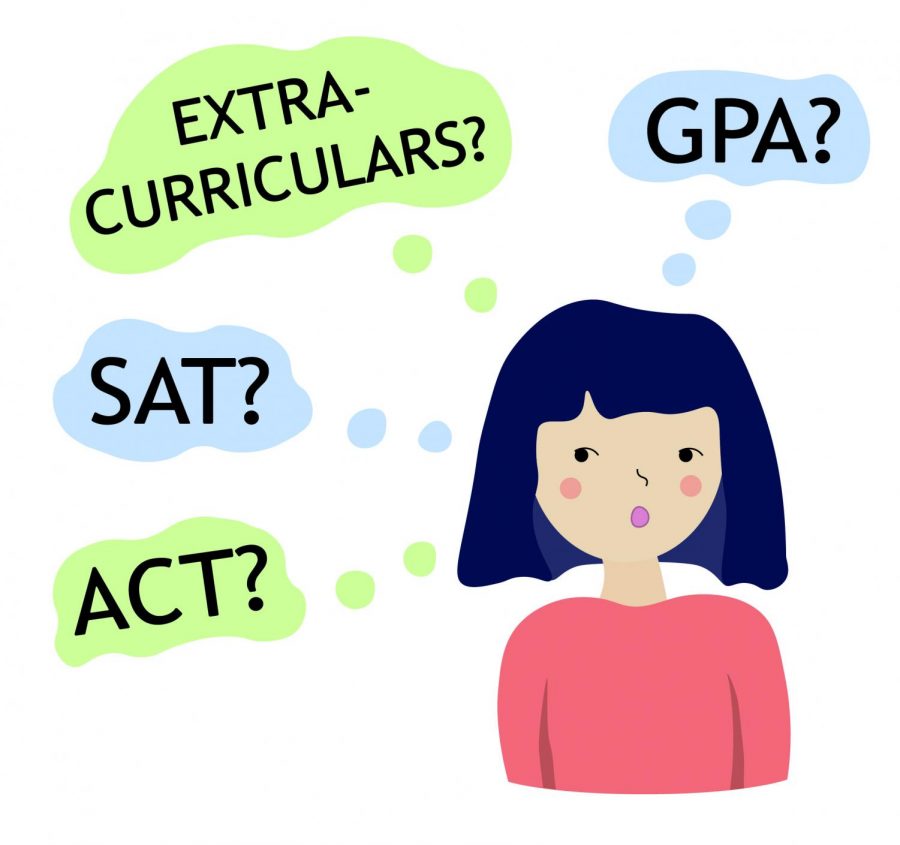Students adapt to changing college admissions
With current juniors unable to take standardized tests, more schools are becoming test optional.
Juniors are finding untraditional ways to prepare for college during the coronavirus pandemic. If stay-at-home or shelter-in-place orders continue through the summer or fall, juniors will not be able to physically visit schools, take standardized tests or participate in extracurricular activities to boost their applications.
These changes have caused junior Jaden Rotter to alter his plans for the summer and college applications.
“I will likely be unable to be productive with a job or community service this summer given the current pandemic. This will make talking about who I am and my accomplishments more difficult,” Rotter said.
However, Rotter also sees an upside to Oregon’s current stay-at-home order.
“With school out I have a lot more free time with which I can start writing the essays needed for college,” he said. “I now have more time to pursue my own interests (coding class at OSU) and prepare for college.”
Junior Abbey Russell finds herself much more concerned about the college admission process than she was before the pandemic.
“My first source of worry is standardized testing,” she said. “With the SAT and ACT canceling their April and May tests, there will not be as many chances as to take a standardized test.”
If COVID-19 worsens, Russell is afraid she will not be able to take these tests at all. Although Russell knows that some colleges are going test-optional, meaning applicants will not be required to submit SAT or ACT scores, she knows that admission standards will be different.
The Oregon Department of Education announced on Apr. 15 that high school students will receive a pass or incomplete instead of a letter grade. Because of this change, Russell feels more uncertainty with the college admission process.
“Colleges will have to rely more heavily on other parts of a student’s application,” she said.
Russell shared questions she believed all high school juniors are worrying about.
“Just because this time is so different and no one knows what the future holds, it is causing lots of anxiety to juniors. Will we be able to go on college tours? Will acceptance rates change? What will colleges turn to look at if ACT and SAT scores fall through?” she asked.
Shannan Fasold, Lincoln’s Career Coordinator and ASPIRE Site Coordinator, has advice for juniors and recommends they check out several resources to aid in college exploration and preparation.
“All colleges have moved to virtual tours and visit days, so juniors can take advantage of those,” said Fasold. “The most important thing for juniors to do when they are back in the fall is to start their application process early and be in frequent communication with their counselors.”
During the pandemic, juniors can begin exploring post-high school options, learn about different majors and careers, consider letters of recommendation and research colleges or universities of interest.
Fasold also recommended the Oregon Goes to College resource, Coronavirus & College: What You Need To Know & Do, which gives specific COVID-19 information and updates relating to standardized testing.
On this website, students can take virtual tours of Oregon colleges under the “Oregon College Admission Updates” tab or learn how to get an early start on applications under the “Spring 2020: 11th Grade Updates” tab.

